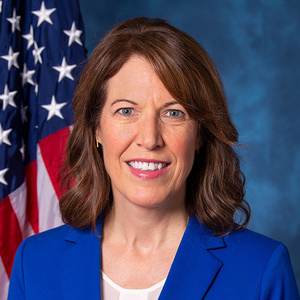Axne touts 9-year extension of biodiesel tax credit in draft bill

September 16, 2021
BY Office of Rep. Cindy Axne, D-Iowa
As the House continues to consider the Build Back Better Act, Rep. Cindy Axne, D-Iowa, is touting the inclusion of a nine-year extension of the biodiesel tax credit that is included in the draft legislation.
Yesterday, the House Ways and Means Committee advanced the tax portion of the comprehensive budget bill with language that would extend the biodiesel tax credit until the end of 2031.
“Continued support for clean biodiesel means supporting and expanding an American industry that fuels our society while reducing carbon emissions. As the lead sponsor of the legislation that would extend the biodiesel tax credit, I’m pleased to see that our current draft of the Build Back Better Act includes language that would ensure this credit can continue to support our biodiesel industry into the next decade,” said Axne. “Continued support for biodiesel will keep us on a pathway that has kept millions of tons of carbon out of our air and put over 65,000 Americans to work. Since coming to Congress two years ago, support for Iowa’s producers and farmers through measures like the biodiesel tax credit has been a top priority for me – and I will continue to work to get this extension to the President’s desk.”
In May, Axne and Rep. Mike Kelly, R-Pa., introduced bipartisan legislation to extend the biodiesel tax credit for three years.
The tax credit, which is set to expire at the end of 2022 after being revived in December 2019, supports a homegrown clean energy sector that employs thousands of Americans while lowering emissions.
Advertisement
Benefits of the biodiesel tax credit
The biodiesel industry has grown rapidly with the help of the biodiesel tax credit in the past. From 2013 to 2016, when the tax credit was in place for the entire three-year period, U.S. production grew by 400 million gallons. And in 2020, despite COVID-19-related market shocks, production still grew more than 150 million gallons with the help of the newly revived credit.
From 2015 to 2018, it is estimated that use of biodiesel and other renewable diesels helped reduce U.S. carbon emissions by 9.3 million tons. Biodiesel production also provides secondary market uses for used cooking oils and recycled animal fats, which would otherwise be added to landfills.
Axne’s previous work on the biodiesel tax credit
Axne began advocating for a revival of the biodiesel tax credit, which last expired in 2017, within her first weeks in office.
Advertisement
Axne led efforts to see the biodiesel tax credit revived in 2019, successfully securing its inclusion in bipartisan year-end tax legislation.
Background on the Build Back Better Act and its support for biofuels
The tax section of the Build Back Better Act will be added with sections approved by other committees – including sections approved by Axne through the Agriculture and Financial Services Committees – to be compiled by the House Budget Committee later this month before advancing to the House Floor for final approval.
Last week, Axne announced that the Agriculture section of the bill includes $1 billion for biofuels infrastructure to support expanded availability and use of renewable fuels.
Related Stories
Iowa farmers have a new market opportunity for their 2025 soybean crop. Landus is expanding its Clean Fuel Regulation initiative, made possible by recent policy changes expected to increase Canada's demand for liquid biofuel.
Topsoe, a leading global provider of advanced technology and solutions for the energy transition, has been selected as the renewable diesel technology partner for CountryMark’s Mount Vernon, Indiana refinery.
Klobuchar, Moran introduce bipartisan legislation to support biorefineries, renewable chemicals, and biomanufacturing
Sens. Amy Klobuchar, D-Minn., and Jerry Moran, R-Kan., on July 31 announced the introduction of the Ag BIO Act. The legislation aims to update the USDA’s loan guarantee program to better support biorefining projects.
The U.S. exported 35,953.6 metric tons biodiesel and biodiesel blends of B30 or greater, according to data released by the USDA Foreign Agricultural Service on Aug. 5. Biodiesel imports were at 2,148.9 metric tons for the month.
XCF Global leverages Alfa Laval technology to enhance pretreatment capabilities at New Rise Reno facility
XCF Global Inc. on Aug. 5announced it leverages Alfa Laval Inc. pretreatment technology at its New Rise Reno biorefinery, a sustainable aviation fuel (SAF) plant located in Nevada. The pretreatment technology enhances feedstock flexibility at the plant.
Upcoming Events










